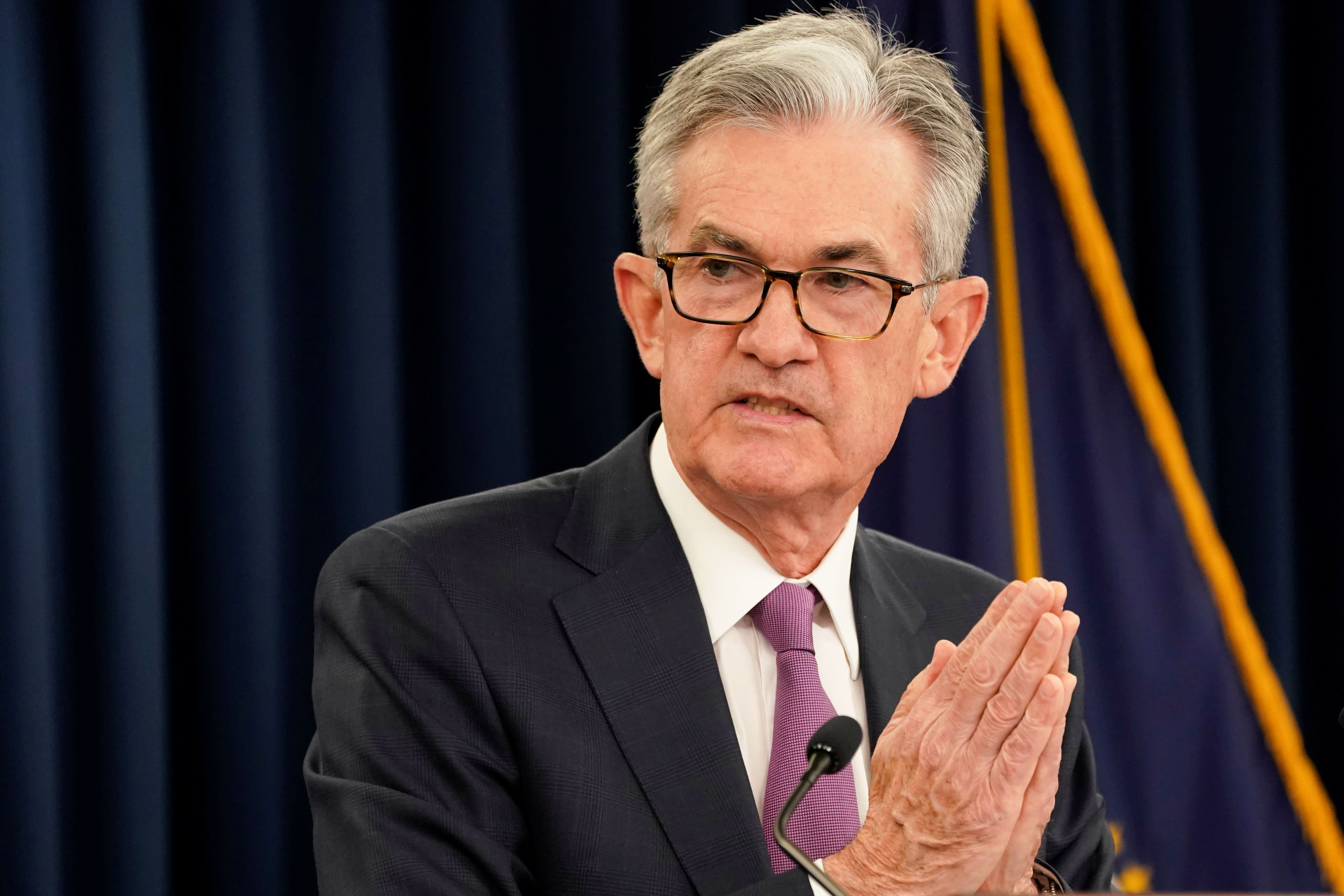The U.S. economy could shrink by upwards of 30% in the second quarter but will avoid a Depression-like economic plunge over the longer term, Federal Reserve Chairman Jerome Powell told "60 Minutes" in an interview aired Sunday.
The central bank chief also conceded that jobless numbers will look a lot like they did during the 1930s, when the rate peaked out at close to 25%,
However, he said the nature of the current distress coupled with the dynamism of the U.S. and the strength of its financial system should pave the way for a significant rebound.
Asked by host Scott Pelley whether unemployment would be 20% or 25%, Powell said, "I think there're a range of perspectives. But those numbers sound about right for what the peak may be." Pressed on whether the U.S. is headed for a "second depression," he replied, "I don't think that's a likely outcome at all. There're some very fundamental differences."
In a part of the interview that did not air, Powell said shrinkage of U.S. economic growth "could easily be in the 20s or 30s," according to a CBS transcript.
He said that growth could return in the third quarter.
"I think there's a good chance that there'll be positive growth in the third quarter. And I think it's a reasonable expectation that there'll be growth in the second half of the year," Powell said. "I would say though we're not going to get back to where we were quickly. We won't get back to where we were by the end of the year. That's unlikely to happen."
Among the factors that he said are different from the Depression era are an activist Fed and a Congress that already has passed close to $3 trillion in rescue funds and is contemplating another round. Also, the cause of this downturn is not an asset bubble or another associated more fundamental reason but rather a self-induced economic freeze brought on by efforts to combat the coronavirus.
Those efforts have led to 36.5 million Americans filing unemployment claims over the past two months and an unemployment rate currently at 14.7% and headed higher.
"In this case, you have governments around the world and central banks around the world responding with great force and very quickly. And staying at it," Powell said. "So I think all of those things point to what will be -- it's going to be a very sharp downturn. It should be a much shorter downturn than you would associate with the 1930s."
The Atlanta Fed estimated Friday that the data so far in the second quarter suggest a drop in GDP of 42%. That would be far and away the worst the U.S. has seen.
Powell did not speculate on what shape the recovery would take, but estimated that the U.S. ultimately will get to where it was before the virus hit — in the midst of the longest expansion in U.S. history. He cautioned, though, that a full recovery may not happen until a vaccine is found for the coronavirus.
"So in the long run, I would say the U.S. economy will recover," he said. "We'll get back to the place we were in February; we'll get to an even better place than that. I'm highly confident of that. And it won't take that long to get there."
Correction: A previous version of this story incorrectly quoted Chairman Powell's projection for unemployment.


